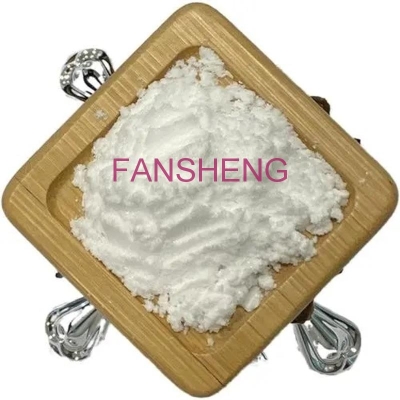-
Categories
-
Pharmaceutical Intermediates
-
Active Pharmaceutical Ingredients
-
Food Additives
- Industrial Coatings
- Agrochemicals
- Dyes and Pigments
- Surfactant
- Flavors and Fragrances
- Chemical Reagents
- Catalyst and Auxiliary
- Natural Products
- Inorganic Chemistry
-
Organic Chemistry
-
Biochemical Engineering
- Analytical Chemistry
- Cosmetic Ingredient
-
Pharmaceutical Intermediates
Promotion
ECHEMI Mall
Wholesale
Weekly Price
Exhibition
News
-
Trade Service
Click on the blue word above and follow us.
According to a new study on mice, in the insular cortex (a leaflet folded deep in the cerebral cortex of a mammal), body feedback signals are used to counteract fear responses
.
The study revealed the dual role of the insular cortex in enhancing or weakening fear subsidence, depending on the animal's internal fear state
.
Fear (the instinctive response to danger) is essential to survival
.
However, it needs to be kept in a functional balance to stay healthy
.
If a fear response is too strong, it can lead to anxiety and stress disorder
.
Conversely, a response that is too weak may lead to excessive risk-taking
.
Fear causes strong physical feedback signals, including changes in the heart and breathing rate, as well as behavioral (for example, fighting or running away) and emotional (for example, disturbing feelings of fear) responses, which help in the face of danger Self-protection
.
However, a true understanding of how the mind and body work together to balance fear within the adaptive range remains elusive
.
Previous studies have shown that the insular cortex (InsCtx) plays a role in processing body signals and possibly in maintaining and subtracting fear
.
To investigate whether InsCtx helps in fear regulation, Alexandra Klein and colleagues used a mouse model
.
Through a series of conditioned fear experiments, they found that InsCtx plays an important parallel role in enhancing or suppressing fear
.
According to Klein et al.
, InsCtx function depends on body feedback signals
.
For example, the rigid behavior caused by fear is related to the slowing down of heart rate, which in turn will inhibit the activity caused by fear in the insular cortex, thus keeping the fear response within an adaptive range
.
The results of the study illustrate how InsCtx integrates the opposite sensory and physical signals related to fear that are required for fear regulation
.
John Christianson wrote in a related "Perspective": "The work of Klein et al.
emphasized the importance of a comprehensive'mind, mind, brain, and body' approach to understanding emotions, and provided a template for the future of basic science.
In order to reveal how complex states related to pain and disease interact with psychological processes
.
"Welcome to follow the Science official public account.
Click "Read the original text" below to visit the English original text.
According to a new study on mice, in the insular cortex (a leaflet folded deep in the cerebral cortex of a mammal), body feedback signals are used to counteract fear responses
.
The study revealed the dual role of the insular cortex in enhancing or weakening fear subsidence, depending on the animal's internal fear state
.
Fear (the instinctive response to danger) is essential to survival
.
However, it needs to be kept in a functional balance to stay healthy
.
If a fear response is too strong, it can lead to anxiety and stress disorder
.
Conversely, a response that is too weak may lead to excessive risk-taking
.
Fear causes strong physical feedback signals, including changes in the heart and breathing rate, as well as behavioral (for example, fighting or running away) and emotional (for example, disturbing feelings of fear) responses, which help in the face of danger Self-protection
.
However, a true understanding of how the mind and body work together to balance fear within the adaptive range remains elusive
.
Previous studies have shown that the insular cortex (InsCtx) plays a role in processing body signals and possibly in maintaining and subtracting fear
.
To investigate whether InsCtx helps in fear regulation, Alexandra Klein and colleagues used a mouse model
.
Through a series of conditioned fear experiments, they found that InsCtx plays an important parallel role in enhancing or suppressing fear
.
According to Klein et al.
, InsCtx function depends on body feedback signals
.
For example, the rigid behavior caused by fear is related to the slowing down of heart rate, which in turn will inhibit the activity caused by fear in the insular cortex, thus keeping the fear response within an adaptive range
.
The results of the study illustrate how InsCtx integrates the opposite sensory and physical signals related to fear that are required for fear regulation
.
John Christianson wrote in a related "Perspective": "The work of Klein et al.
emphasized the importance of a comprehensive'mind, mind, brain, and body' approach to understanding emotions, and provided a template for the future of basic science.
In order to reveal how complex states related to pain and disease interact with psychological processes
.
"Welcome to follow the Science official public account.
Click "Read the original text" below to visit the English original text.







